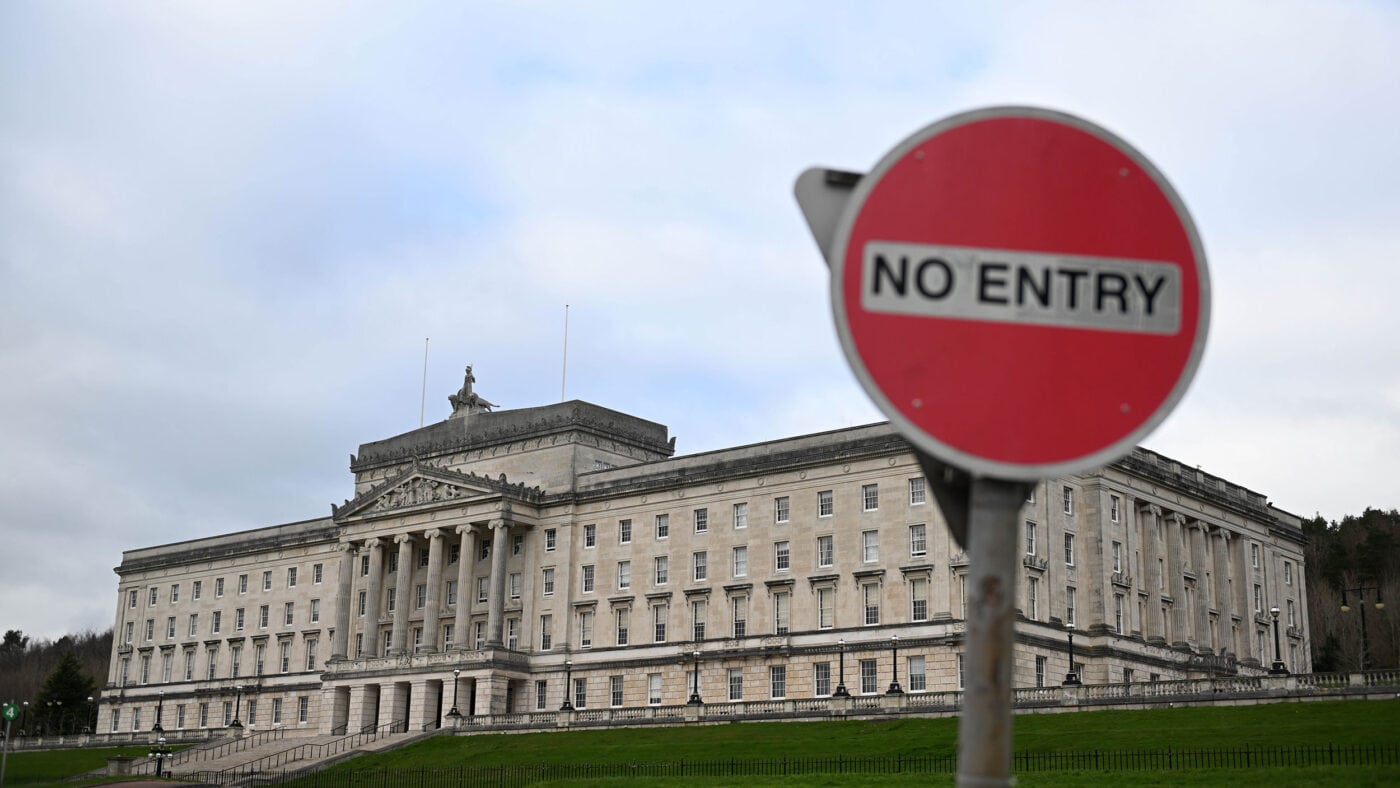The House of Commons’ Northern Ireland Affairs Committee published its report on ‘The effectiveness of the institutions of the Belfast / Good Friday Agreement’ this week. The select committee is chaired by the Conservative MP, Sir Robert Buckland, who recently replaced Simon Hoare, who was involved in producing this document.
Its proposals are supposed to help revive Stormont and keep it operational. Ironically, though, its suggestion that Dublin should have an enhanced role in running Northern Ireland will only sharpen unionist anxieties that many MPs at Westminster either don’t understand the province’s place in the Union or don’t care about it. The report may therefore have the opposite effect to what was intended.
The devolved assembly and executive, of course, have failed to operate for almost two years, because the Democratic Unionist Party (DUP) refuses to participate in regional government while it is required to implement an Irish Sea border under the Northern Ireland Protocol.
Prior to that, Sinn Fein blocked power-sharing, after it claimed that the DUP’s Arlene Foster should step down as first minister while a renewable heating scandal was investigated. That hiatus eventually lasted for three years, between 2017 and 2020, during which the republican party issued an ever evolving list of ‘red-line’ demands that had little to do with the original issue of green energy payments.
It’s self-evident, then, that the Belfast Agreement institutions have not been working effectively.
In order to form an executive, under the agreement, the first and deputy first ministers must be supported by a majority of both unionist and nationalist MLAs. That, in effect, gives the two largest parties in those blocs – for the past twenty years the DUP and Sinn Fein – a veto over the government’s formation and survival.
The select committee report recommended removing any distinction between the first and deputy first ministers, changing them instead to ‘Joint First Minister’. The two roles already have ‘co-equal’ powers, so it argued that it would be helpful to get rid of any symbolic one-up-manship that the titles bestow.
The committee also said that these posts, and the important speaker’s role, should be electable by a ‘supermajority’ of two-thirds of MLAs. The theory is that a single party would then be unable to wield a veto that prevented an executive from being formed.
These were the kinds of ideas, a short number of years ago, that pro-Union politicians in Northern Ireland were advocating, to prevent Sinn Fein from repeatedly derailing devolution. They were described back then as unacceptable to nationalists, who claimed that they would be used to sideline their views and enforce ‘unionist supremacy’.
Now that unionists are in a slight minority, when nationalists and so-called ‘middle ground’ parties are grouped together, these protections, previously viewed as vital, are apparently no longer important.
The committee’s most inflammatory proposal, though, is that changes to the political system are made, ‘in close consultation with the government of Ireland’. In the Belfast Agreement, the authorities in the Republic were specifically excluded from strand 1 matters, which involve Northern Ireland’s internal affairs.
Lord Empey, a former leader of the moderate Ulster Unionist Party, which, unlike the DUP, supports reviving power-sharing immediately, described the committee’s recommendation as, ‘a very dangerous precedent’. ‘It would be in my view a very serious development,’ he said, ‘because the UK government would be saying not only does Brussels have a routine say on our day-to-day lives (in Northern Ireland) – but .. the Irish government would have one as well. In my view that would break all sorts of constitutional taboos.’
The Stormont Assembly is not currently operating because Northern Ireland was cut off from the rest of Britain economically and politically by an Irish Sea border. Important sections of the Acts of Union, which guaranteed that the province was treated the same as Great Britain as regards trade, were discarded and Brussels was handed extensive powers over an integral part of the UK.
The Commons select committee’s proposed solution is to show more contempt for Northern Ireland’s constitutional position, by permitting another foreign power to meddle in its politics. In taking this approach, it has ignored the objections of two DUP MPs, who form half of the committee’s Ulster-based membership and belong to the party that needs to be convinced to return to government.
Some of the proposals in this report are constructive and could form the basis of a legitimate discussion about the future of the Belfast Agreement institutions. Unfortunately, they are undermined completely by the idea that the Republic should gain a greater say in the province’s internal affairs.
That recommendation is either staggeringly naïve or, worse, it is designed to bully unionists back into an executive.
Click here to subscribe to our daily briefing – the best pieces from CapX and across the web.
CapX depends on the generosity of its readers. If you value what we do, please consider making a donation.


